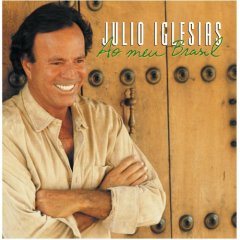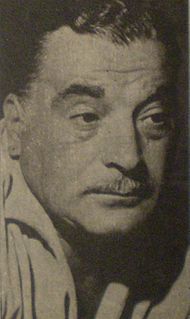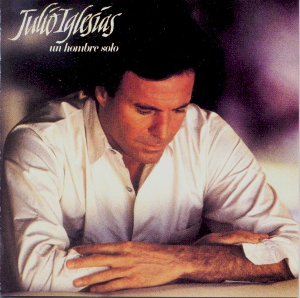
Enanitos Verdes is a rock trio from Argentina, formed in 1979 in the city of Mendoza.

Ao Meu Brasil is an album by Julio Iglesias released on December 18, 2001 by Sony International. Iglesias sings all the songs in Portuguese.

Arturo Uslar Pietri was a Venezuelan intellectual, historian, writer, television producer and politician.

René Marqués was a Puerto Rican short story writer and playwright.

Norberto Aníbal Napolitano, known by his stage name Pappo, was an Argentine electric guitarist, singer-songwriter and composer. He is regarded as one of the most influential guitarists in the history of Argentine rock.
Premio Nadal is a Spanish literary prize awarded annually by the publishing house Ediciones Destino, part of Planeta. It has been awarded every year on 6 January since 1944. The Josep Pla Award for Catalan literature is given at the same ceremony.

María de los Ángeles Felisa Santamaría Espinosa, professionally known as Massiel, is a Spanish pop singer. She won the Eurovision Song Contest 1968 with the song "La, la, la", beating the British pop singer Cliff Richard's "Congratulations".

El Último de la Fila was a successful Spanish rock group based in Barcelona, Spain. Formed in 1985 by Manolo García and Quimi Portet, the group released a total of 7 full-length albums before disbanding in early 1998.

Mario Soffici was an Argentine film director, actor and screenwriter of the classic era.
Héctor Pastor Bidonde is a noted Argentine theatre, film and television actor.

Lucas Demare was an Argentine film director, screenwriter and film producer prominent in the Cinema of Argentina in the 1940s, 1950s and 1960s.

Un hombre solo is a Julio Iglesias album released in 1987. It achieved worldwide success. The album was composed, arranged and produced by Manuel Alejandro. In 1988, it won the Grammy Award for Best Latin Pop Album.The album was released in LP, CD and Digipack format, with 2 editions: worldwide and Brazil. He received platinum distinction in different countries like: Argentina (8×); Mexico, Colombia, Chile, Spain, Brazil (5×); Venezuela and Sony Discos (4×).
Juan Alighieri was an Argentine film actor.

Myriam Raquel Hernández Navarro, popularly known as Myriam Hernández, is a Chilean singer-songwriter and television presenter. She is known throughout Latin America for her romantic ballads.

Homero Cárpena was an Argentine film actor born in Mar del Plata. He appeared in 72 films between 1933 and 1972 although the bulk of his work was in the late 1930s and 1940s. He starred in El hombre señalado, which was entered into the 7th Berlin International Film Festival. He was the father of actresses Claudia Cárpena and Nora Cárpena.

Mar Montoro is a Spanish presenter.
Stigma is a Mexican luchador enmascarado, or masked professional wrestler currently working for the Mexican professional wrestling promotion Consejo Mundial de Lucha Libre (CMLL) portraying a tecnico wrestling character. Stigma's real name is not a matter of public record, as is often the case with masked wrestlers in Mexico where their private lives are kept a secret from the wrestling fans. While his real name is not public knowledge it has been confirmed that he is the brother of CMLL wrestler Skándalo, son of former wrestler El Jabato and grandson of Manuel Robles, making him a third generation wrestler.

Juan José Morosoli was a Uruguayan writer. His masterpiece is Perico, a collection of short stories for children, which included "Arenero" and "La Querencia Olvidada" in 1947.
Antonio Momplet was a Spanish film director and screenwriter. He worked in Spain, France, Argentina and Mexico.
Hombres, the plural of Hombre and sometimes used informally in English, may refer to:
This page is based on this
Wikipedia article Text is available under the
CC BY-SA 4.0 license; additional terms may apply.
Images, videos and audio are available under their respective licenses.













